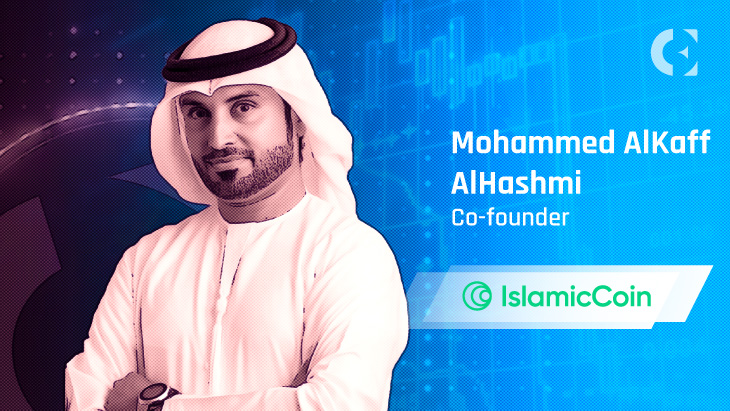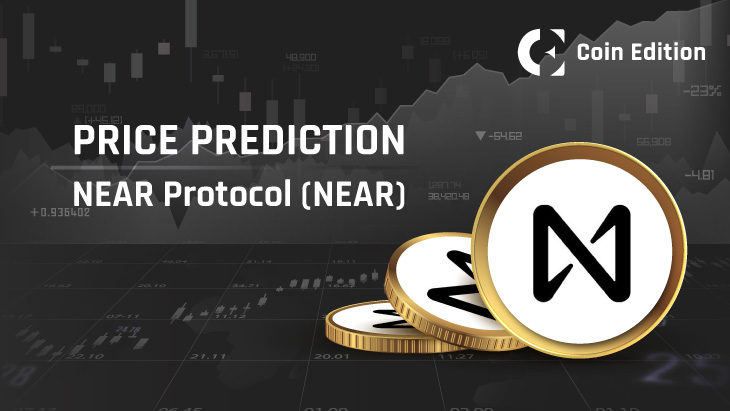Mohammed AlKaff AlHashmi has over 18 years of experience in Computer Science and Engineering, with a focus on Industry 4.0, artificial intelligence, machine learning, industrial automation, and IoT. He is an entrepreneur working on a series of cutting-edge tech initiatives and is the Founder of Islamic Coin: a currency dedicated to empowering an ethics-first Shariah-compliant financial ecosystem.
Q: The Middle East and North Africa (MENA) was the fastest-growing crypto market in 2022, according to a recent report by Chainalysis. What do you think is the cause of this rise?
MENA has become the top region by growth this year, and I think it’s a result of several important factors. Adoption is ongoing on every level: from crypto-friendly government regulation to local blockchain activity. MENA’s market growth has been helped by the rising number of local blockchain initiatives related to financial innovations, environmental, social, and governance (ESG) projects, and education.
This expansion is due to regional cooperation. Chainalysis listed Turkey, Morocco, and Egypt under the top 30 nations in the company’s crypto adoption index, and I see that the UAE, Saudi Arabia, and other countries are developing in this direction too.
Q: The center of the crypto adoption movement in the MENA region is Dubai. Moreover, many people consider Dubai to be the world’s crypto capital. What do you think of Dubai? Has it really become one of the leading global crypto hubs?
In recent years, Dubai has become a leading destination. I consider this as the result of three factors.
The first one is a friendly and robust regulatory framework and a series of government initiatives this year. The local government has taken a bold step toward adopting blockchain technologies.
The second one is the overall trend of the massive inflow of crypto and financial firms in Dubai. The most well-known names from the crypto industry are Binance, OKX, Crypto.com. Moreover, we see the influx of Wall Street organizations like Goldman Sachs, Citigroup, and others. All these institutions relocated their headquarters or opened new offices in Dubai.
The third factor is that Dubai has served as a primary location for crypto, Web3, and blockchain events, forums, and conferences. If you check the info about recent and upcoming crypto events, I think you would be surprised that even during the bear market, these conferences are held almost every week.
UAE created the world’s first Virtual Asset Regulatory Authority (VARA) to help to grow the ecosystem in the right regulated way. In addition to the accumulative investments and developments of infrastructure, human capital, and technologies, these make it the most attractive environment for the world’s crypto community.
Q: Does the government’s support of crypto initiatives contribute to MENA’s crypto market success?
As mentioned earlier, local government support is essential to overall success. Recent regulatory initiatives have significantly contributed to the progress of cryptocurrencies in MENA. For example, Bahrain has regulated crypto, intending to minimize the risk of financial crime and illegal use of crypto assets. Meanwhile, Morocco and Saudi Arabia are developing their own frameworks for supervising the industry.
Speaking of Dubai, this year, it introduced a crypto-friendly framework that was the leading contributing factor in attracting multiple market players. Moreover, the UAE-based Abu Dhabi Global Market (ADGM) International Financial Centre was among the first to introduce crypto-friendly rules back in 2018. In March 2022, the free economic zone’s digital asset framework was extended with draft recommendations to enable licensed firms to trade NFTs.
Q: What are the latest promising blockchain and metaverse initiatives in the MENA crypto market? Would it be the key driver of mass adoption?
This November, Dubai Crown Prince Sheikh Hamdan bin Mohammed Al Maktoum approved a new phase of our metaverse strategy. The program seeks to embrace innovation and the crypto industry’s emerging tech to add $4 billion to the local economy and create 42,000 new virtual jobs by 2030.
The four new strategies of this newly-approved stage aim to study how the government can provide services through the digital realm and what social benefits citizens can realize from metaverse services. Roughly a month earlier, Multiverse Labs launched a new metaverse city in the United Arab Emirates as part of a government-backed initiative.
We also have recent data that the metaverse’s annual contribution to Saudi Arabia’s economy by 2030 is expected to be $7.6 billion, and the United Arab Emirates is about $3.3 billion. So, the UAE is only one contender in the MENA region’s race to conquer the metaverse.
Q: What is your role in the development of blockchain initiatives in this region? What are you currently working on?
For now, I am working on a series of cutting-edge tech initiatives, one of which is a blockchain-driven solution. It’s Islamic Coin, the native currency of Haqq community-run blockchain, dedicated to empowering an ethics-first Shariah-compliant financial ecosystem. Its mission is to give the world’s Muslim community a financial instrument for the Digital Age and overcome the unbanking problem.
Islamic Coin and Haqq Chain are not exclusive only to Muslims; in fact, it’s an ethical first Fintech tool that serves all people.
Islamic Coin meets all criteria of a Halal asset with a finite total supply. 10% of each issuance is deposited into the Evergreen DAO for further investment to support technology projects and bring direct economic value to the community. Recently Islamic coin gained a Fatwa from the Indonesian Ulema Council, the country’s leading Islamic religious authority. This marks the first time in history that any cryptocurrency has received recognition from a traditionally conservative institution.
In addition to what is mentioned above, in progress and to be released next year are Halal Stablecoin, Exchange, and other sharia products on the blockchain on the roadmap to add more and more valuable products to enrich the ecosystem.
Q: What is the role of blockchain technology in the rise of the Islamic finance sector for the MENA region?
I see that blockchain can be a solution to establishing an inclusive Shariah-compliant financial ecosystem in the digital space, which would also boost the growing global Islamic economy. It creates a great opportunity for Islamic investors to engage in the crypto space. As cryptocurrencies are on the verge of mass adoption, a Shariah-compliant blockchain can allow the Muslim people to join the ongoing tech revolution and reap the benefits of the new digital economy.
Conceptually, a Shariah-based token would be a cryptocurrency with a limited issuance that cannot be arbitrarily produced or supplied, thus devalued — which is also the core concept of decentralized finance.
Islamic Finance had a 25%+ yearly growth, with a growing Muslim community of more than 1.8 billion. I see this market and community are underserved in the DeFi world. However, blockchain is an excellent matching technology with Sharia’s finance ethics and values. Blockchain is transparent, reliable, and traceable, so having a Sharia-compliant ecosystem in the DeFi world will furnish the way for more adoption for the non-crypto native community and will boost the development of many Sharia-compliant products.
Q: How will blockchain adoption reshape the local finance and education industries?
Every day we see more amazing products on the blockchain that support finance and education, making it more accessible, cost-effective, and faster. For now, blockchain technology is on the way to reaching a maturity level to be more trusted by the community and serve them in a professional way. At Islamic Coin, we encourage and support such projects and initiatives through the EverGreen DAO.
The recent financial crisis has barely influenced the Islamic financial system due to its prohibitions on speculative transactions and its attention to fairness and risk-sharing. It has even registered double-digit growth of 10.6% in 2020. Even more striking is that the industry is expected to continue growing in the near-to-mid term.
The Islamic finance sector is currently estimated to be worth a staggering $2.3 trillion — serving the needs of nearly 1/4th of the world’s population. So, blockchain networks based on the principles of Islamic finance are the next big step. It will also help to solve the problem of the unbanked, e.g., more than 50% of the population in some countries in Southeast Asia and Africa.
Disclaimer: The information presented in this article is for informational and educational purposes only. The article does not constitute financial advice or advice of any kind. Coin Edition is not responsible for any losses incurred as a result of the utilization of content, products, or services mentioned. Readers are advised to exercise caution before taking any action related to the company.







